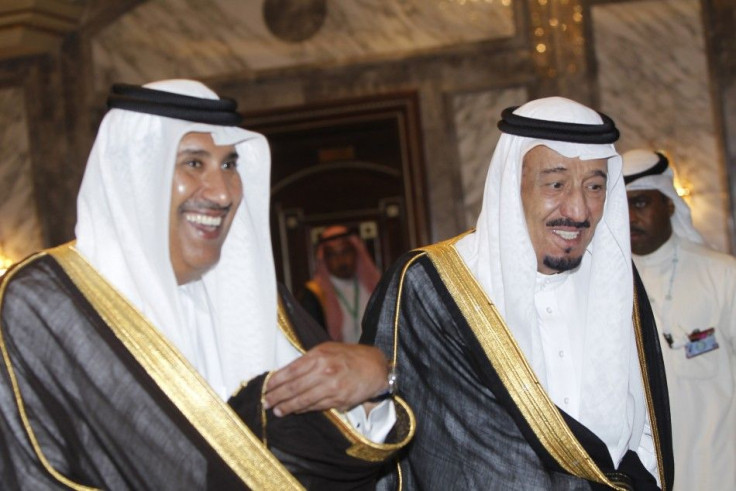GCC Meets In Saudi Arabia To Tighten Economic-Political Unity

Leaders of the Gulf Cooperation Council (GCC) gathered in the Saudi Arabian capital of Riyadh on Monday for a one-day meeting to discuss the possibility of forming a regional bloc similar to the European Union.
The six-member council -- made up of Bahrain, Kuwait, Oman, Qatar, Saudi Arabia and the United Arab Emirates -- will mull the December proposal made by Saudi Arabia's King Abdullah to formalize an alliance -- possibly with a standardized currency, although the UAE opposes the idea -- and to unify foreign, defense and financial policies, according to Arabian Business.
The chair of the meeting, Saudi Foreign Minister Prince Saud al-Faisal, said that regional security threats -- namely Iran and the growing presence of al Qaeda in some 'Arab Spring' nations -- as well as economic challenges necessitates formation of such a union.
The threats of all kinds require the hard [work] of the GCC countries to shift from a current formula of cooperation to a union formula acceptable to the six countries, Faisal said last month.
Although GCC leaders haven't explicitly said that a union could help prevent government-toppling revolutions similar to the ones in Tunisia, Egypt and Libya, the Arab Spring protests are certainly on member states' minds. King Abdullah said at the December GCC summit that we are targeted in our security and stability, and Bahrain is still suffering from anti-government protests.
Saudi Arabia and Bahrain, which has been a public supporter of the Gulf union, are already expected to form a closer alliance in order to combat these external threats, and there is a good chance that Qatar, or possibly Kuwait, intend to join the new plan as well, according to Gulf News.
“I expect there will be an announcement of two or three countries. We can’t be sure, but I have a strong expectation,” Samira Rajab, Bahrain’s Minister of State for Information Affairs, told Qatar's Peninsula newspaper on Sunday.
“Sovereignty will remain with each of the countries and they would remain as UN members, but they would unite in decisions regarding foreign relations, security, military and the economy.”
Saudi Arabia has already come to Bahrain's aid militarily, sending in troops in March 2011 to suppress the Shiite protests, which both nations accuse Iran of instigating. Iran denies the charges, but the Islamic Republic's parliament said on Monday that the planned Gulf union would only strengthen the Bahraini people's resolve against the forces of occupation, the Telegraph reported.
© Copyright IBTimes 2024. All rights reserved.



















